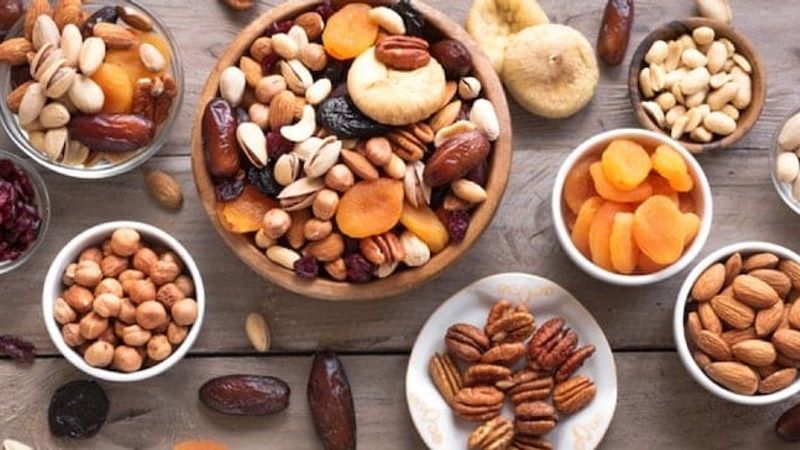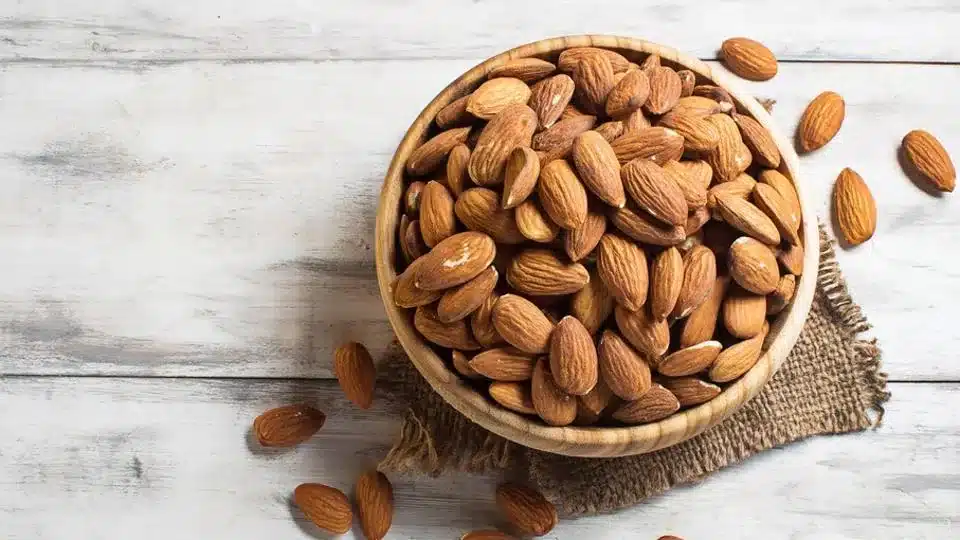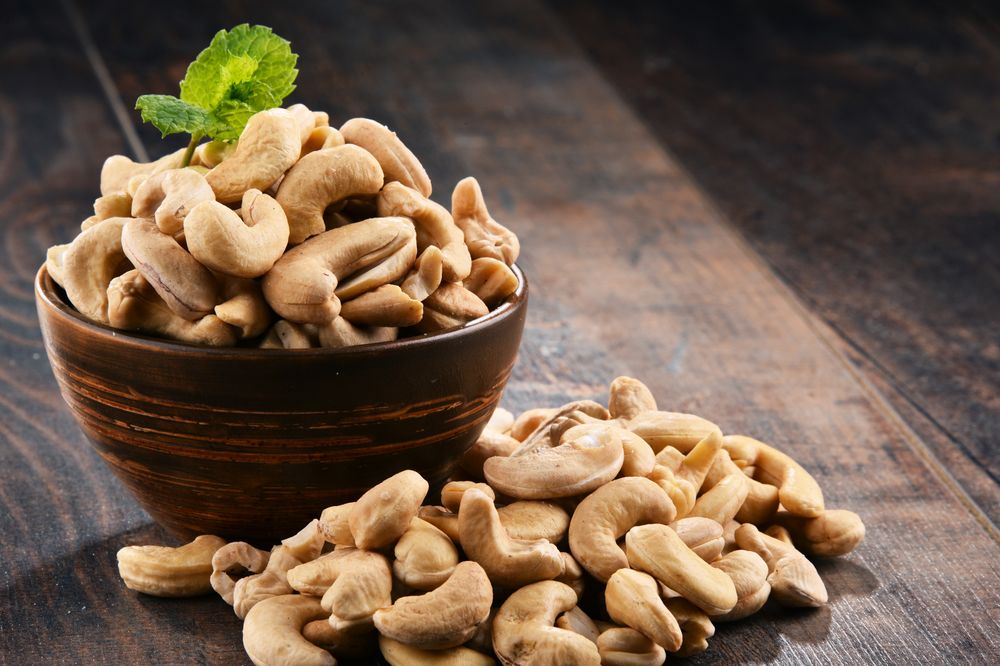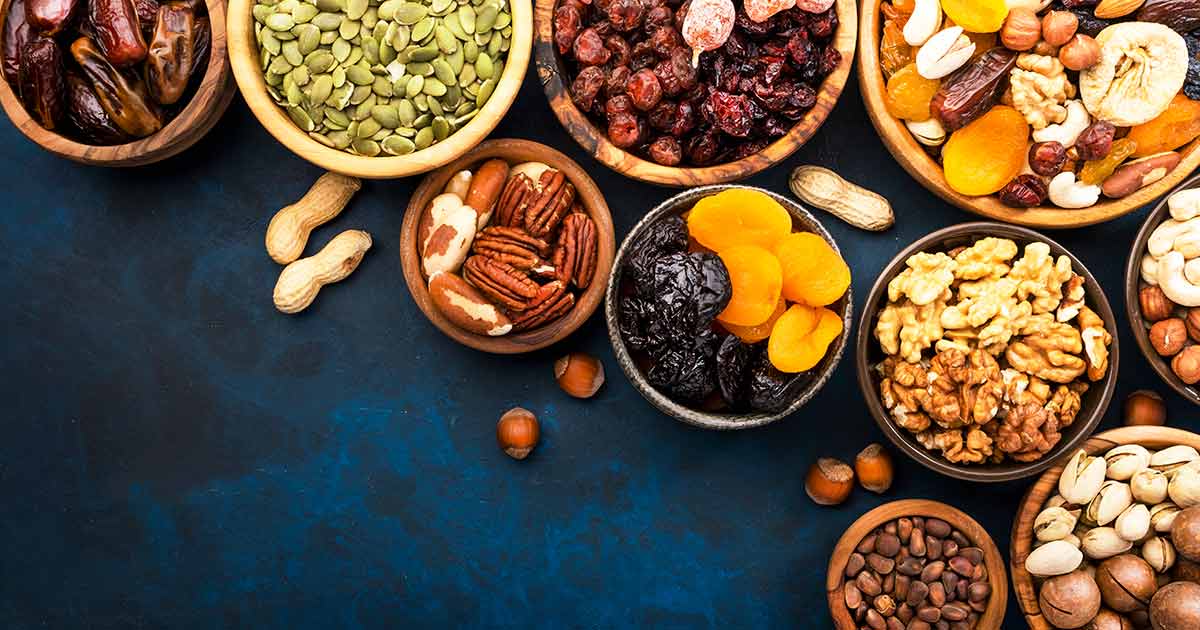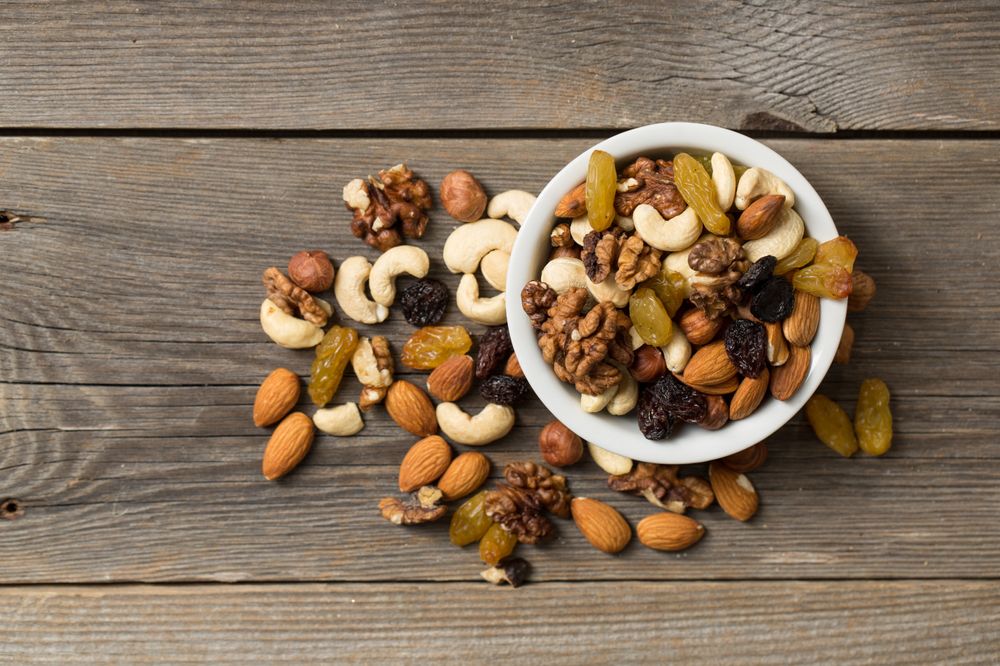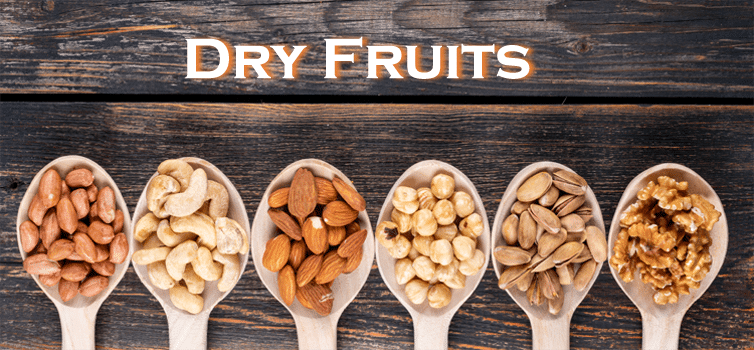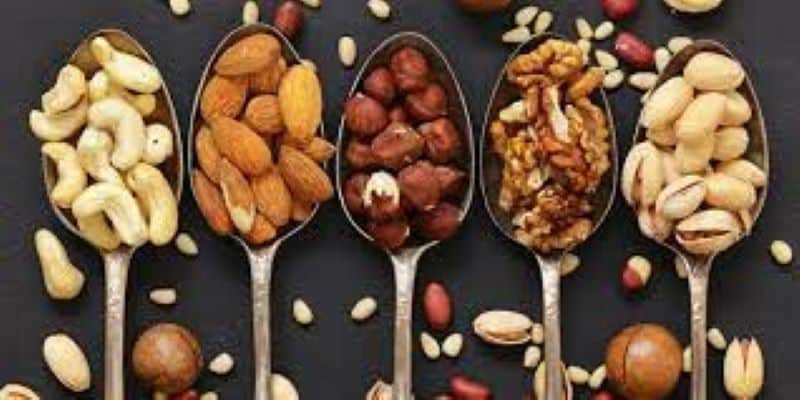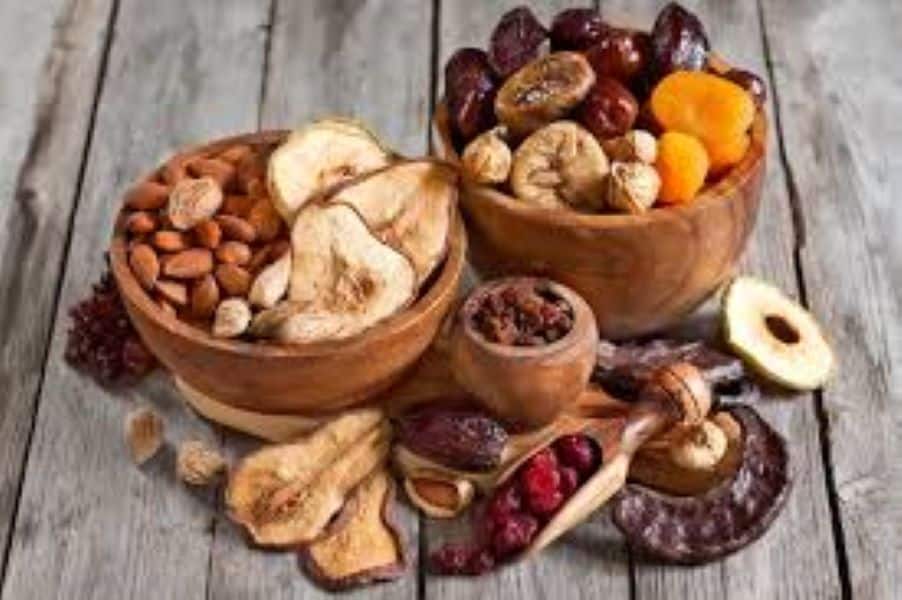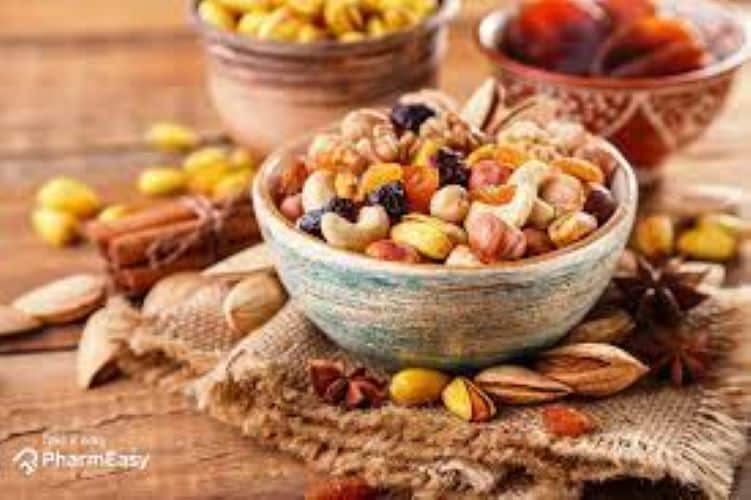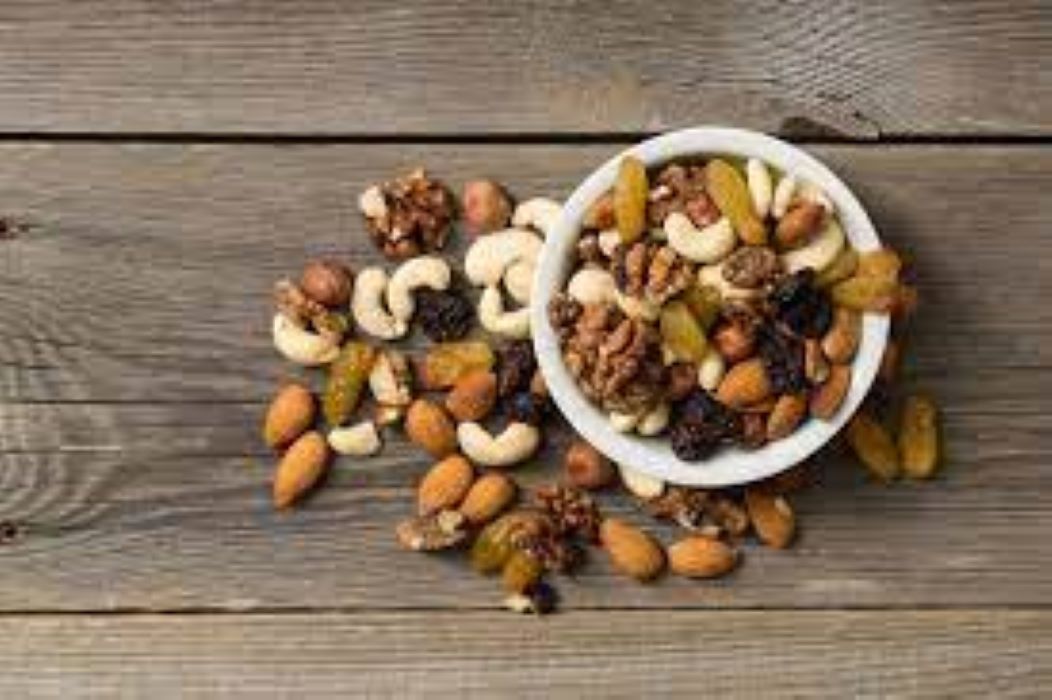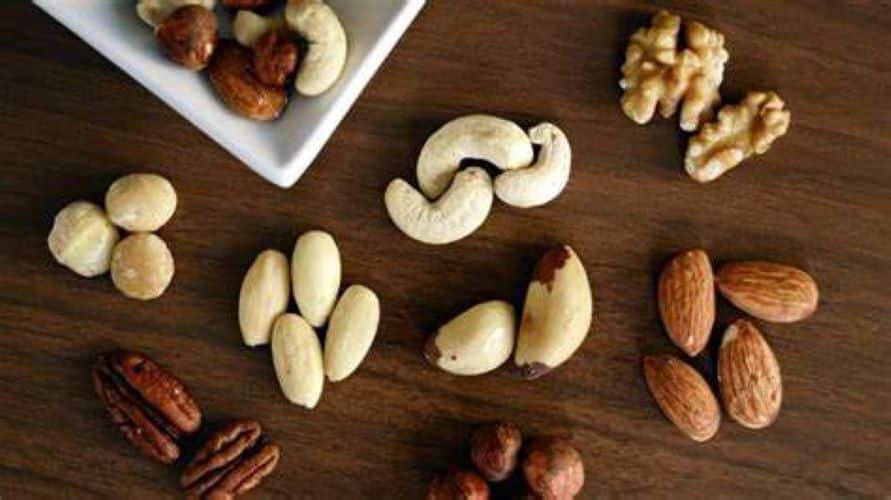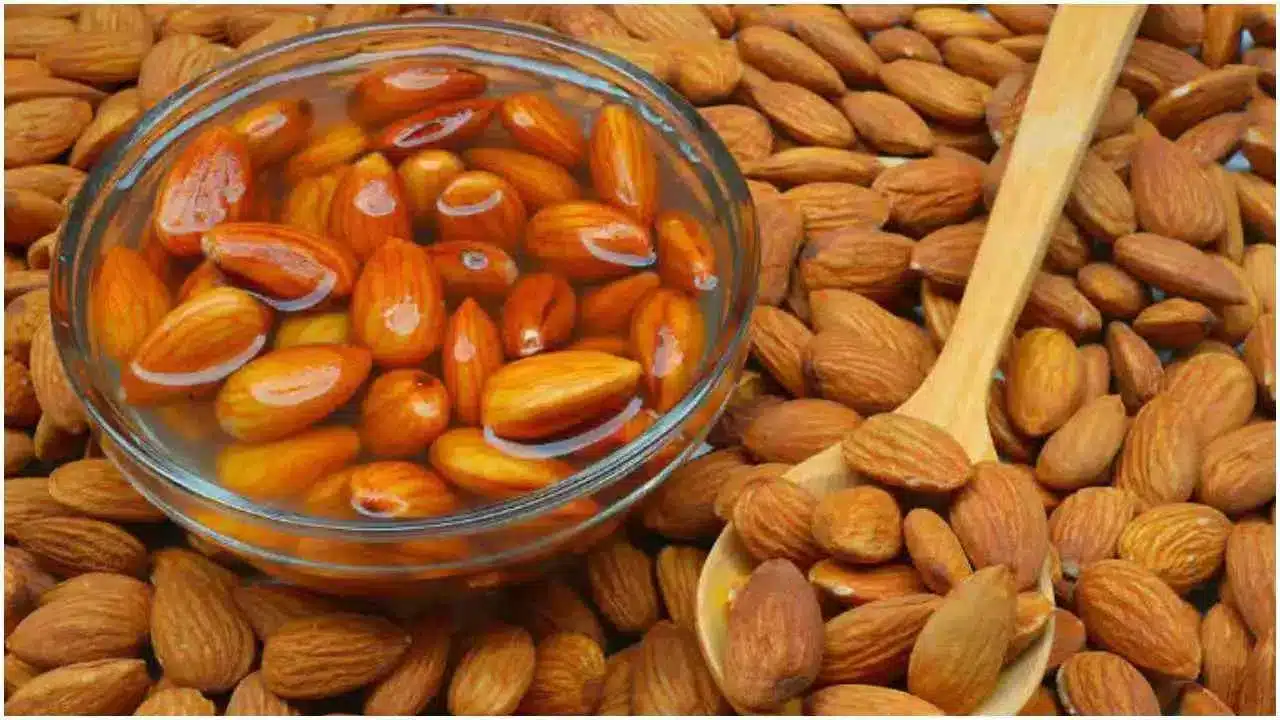Blog
Benefits of Eating Dried Fruits: Why You Should Start Now

Dried fruit has been around for thousands of years, but we still don’t hear about it enough. Dried fruit is an easy way to get some vitamins and minerals into your diet, whether you’re a snack lover or not. Here’s why you should add dried fruit to your grocery list:
They have a low glycemic index.
A low glycemic index is a measure of how quickly a food raises blood sugar levels. The higher the GI number, the greater the impact on your blood sugar. Foods with a high GI (70 or more) typically cause quick spikes in blood sugar and are often accompanied by cravings for more carbohydrates.
Dried fruits have been shown to have low GIs due to their slow digestion process and high fiber content, which helps prevent rapid absorption into your bloodstream.
Dried fruits are also high in antioxidants, which help prevent cell damage caused by free radicals. These powerful compounds have been shown to slow the aging process and reduce your risk of developing heart disease, cancer and other chronic diseases.
In addition, dried fruits are rich in vitamins and minerals, such as iron and potassium. Potassium is an electrolyte that helps regulate your blood pressure by moving sodium out of your cells. This process can help prevent high blood pressure and heart disease.
While dried fruits are a healthy snack choice, you should be aware of the calories and sugar content. Most dried fruit is high in natural sugars and calories, so it’s important to limit your intake and eat them in moderation.
For example, one cup of raisins has about 400 calories and 25 grams of sugar. You’ll also want to watch out for added sugars in dried fruit, as many brands add sugar during processing.
Here are some tips for choosing the best dried fruits: -Look for dried fruit that is unsulfured, with no added sugar or preservatives. -Buy organic whenever possible. -Choose dried fruits that contain at least five grams of fiber per serving and less than 200 calories per serving.
They’re portable.
Dried fruits are a great option for when you’re on the go. They’re lightweight, easy to carry and don’t need to be refrigerated. You can take them with you anywhere!
Dried fruits are also perfect for snacking throughout the day, so if you have a busy schedule or tend to forget about eating healthy snacks in between meals, this is an excellent choice for keeping yourself fueled throughout the day.
Dried fruits are a great way to add some variety to your diet. They’re also a great option if you’re trying to cut down on sugar, which is often found in fresh fruit. Some of the most popular dried fruits include:
-Apricots -Cherries -Mangos -Peaches
-Pears -Raisins -Sultanas
They can help you eat less sugar.
The simple act of eating dried fruit can help you reduce your sugar intake. For example, 1 cup of fresh blueberries contains about 21 grams of sugar, while 1 cup of dried blueberries has just 9 grams. The same goes for other fruits: one medium apple has 12 grams; but one medium banana, which is much higher in natural sugars than apples and other fruits, contains only 5 grams–and that’s when it’s eaten as-is without being dried out further!
If you’re concerned about the amount of added sugars in your diet (which we all should be), then choosing dried over fresh or frozen might be an easy way to cut back on them without sacrificing flavor or texture too much. Dried fruits also make great snacks because they’re portable and don’t require refrigeration–just keep them at room temperature until ready to eat!
Dried fruits are also a great way to add flavor and texture to other dishes, like salads or casseroles. You can also use them as an ingredient in baking, either alone or as part of a mixed fruit jam.
There are many benefits to including dried fruit in your diet, but the most important one is that they can help you cut down on added sugars. For example, 1 cup of fresh blueberries contains about 21 grams of sugar, while 1 cup of dried blueberries has just 9 grams
! Dried fruits are also much lower in calories than their fresh counterparts, which makes them an easy way to cut back on calories without sacrificing flavor or texture. If you’re concerned about the amount of added sugars in your diet (which we all should be), then choosing dried over fresh or frozen might be an easy way to cut back on them without sacrificing flavor or texture too much.
If you’re looking to add more fruit into your diet, then dried fruit is a great alternative to fresh or frozen. They’re also easy to keep on hand, so they’re perfect for snacking on when you need a little something sweet!
If you’re looking for a healthy snack, dried fruit is a great choice. They’re packed with fiber, vitamins and minerals, and they contain less sugar than fresh or frozen fruit. It’s also easy to add them into your diet by simply snacking on them while working at your desk or packing them into your lunch bag!
Dried fruit is a great way to add more fruits into your diet, especially if you don’t like eating fresh or frozen. They’re also easy to keep on hand, so they’re perfect for snacking on when you need a little something sweet! If you’re looking for a healthy snack, dried fruit is a great choice. They’re packed with fiber, vitamins and minerals and contain less sugar than fresh or frozen fruit.
Dried fruit are rich in vitamins and minerals.
Dried fruits are a great source of vitamins and minerals. They are rich in vitamin C, which is an antioxidant that helps to fight free radicals that can cause damage to your cells. Dried fruit also contains fiber, potassium, magnesium and iron.
Dried fruit is also a great source of iron. Iron is essential for maintaining good health because it helps your body to produce red blood cells. The recommended daily intake (RDI) for iron is 8 mg for men and 18 mg for women aged 19-50 years old.
Dried fruit is a great source of vitamin C, which is an antioxidant that helps to fight free radicals that can cause damage to your cells. Dried fruit also contains fiber, potassium, magnesium and iron.
Dried fruit is also a great source of iron. Iron is essential for maintaining good health because it helps your body to produce red blood cells. The recommended daily intake (RDI) for iron is 8 mg for men and 18 mg for women aged 19-50 years old.
Dried fruit is a great source of vitamin C, which is an antioxidant that helps to fight free radicals that can cause damage to your cells. Dried fruit also contains fiber, potassium, magnesium and iron. Dried fruit is also a great source of iron. Iron is essential for maintaining good health because it helps your body to produce red blood cells. The recommended daily intake (RDI) for iron is 8 mg for men and 18 mg for women aged 19-50 years old
. Dried fruit is a great source of vitamin C, which is an antioxidant that helps to fight free radicals that can cause damage to your cells. Dried fruit also contains fiber, potassium, magnesium and iron. Dried fruit is also a great source of iron. Iron is essential for maintaining good health because it helps your body to produce red blood cells. The recommended daily intake (RDI) for iron is 8 mg for men and 18 mg for women aged 19-50 years old
Dried fruit contains fewer calories than fresh fruit or juice.
Dried fruit is more nutritious than fresh fruit. Dried fruits have a lower water content and therefore contain fewer calories. They also contain more fiber, which can help you feel full longer and reduce the risk of diabetes, heart disease and obesity.
Dried fruit has less sugar than fresh or juice: A cup of fresh apricots contains about 50 grams of sugar (about 15 teaspoons); by weight, dried apricots have only 17 grams of carbohydrates per 3/4 cup serving — or about 6 teaspoons worth! Similarly, if you’re looking for a sweet treat that won’t spike your blood sugar levels or make you feel guilty afterward then eating dried grapes instead will help keep those cravings at bay without adding unnecessary calories into your diet plan.”
Dried fruit also contains more nutrients than fresh fruit: While both fresh and dried fruits are a good source of vitamins A and C, dried fruits have more antioxidants. Antioxidants help prevent cell damage from free radicals in your body, which can lead to chronic diseases like cancer and heart disease.
Dried fruit is a convenient snack: You can take dried fruits with you anywhere, even when traveling. They’re also easy to store and have a long shelf life (usually 1–2 years).
They’re good for your health: Dried fruit contains more nutrients than fresh fruit and is a great snack for kids and adults alike.
Eating dried fruit is an easy way to get some vitamins and minerals into your diet.
Dried fruit is a great source of vitamins and minerals. Vitamins are essential for good health, and minerals help keep our bodies healthy by acting as catalysts for chemical reactions inside the body. They also play an important role in normal growth and development as well as protecting against disease.
Dried fruits are high in vitamin C, which helps boost your immune system so you can fight off infections more easily than if you didn’t have enough vitamin C in your diet (1). Dried apricots are especially rich in this nutrient: one serving contains about 17% of your RDI (recommended daily intake) for vitamin C!
They are also a good source of other vitamins and minerals, including iron, potassium, copper and manganese. Iron is important for carrying oxygen around your body so you can stay healthy and get enough energy from food (1).
Dried apricots are also a good source of fiber, which can help keep your digestive system running smoothly. They contain about 1g of fiber per serving, which is about 10% of your RDI (2).
Dried apricots are a great snack because they’re easy to carry around and can be eaten without cooking. They also taste good! So if you’re looking for an easy way to get more fruit into your diet, try adding some dried apricots to your next meal.
You can eat dried apricots as a snack or add them to salads and other dishes. They’re delicious on their own, but they also pair well with other foods like nuts, cheese or even chocolate!



